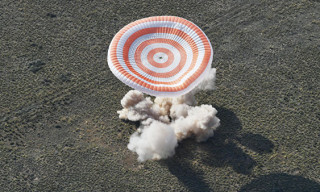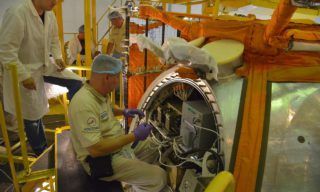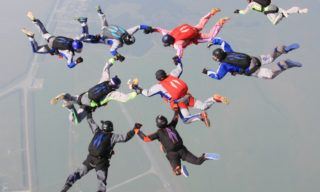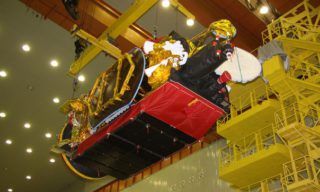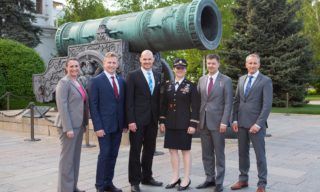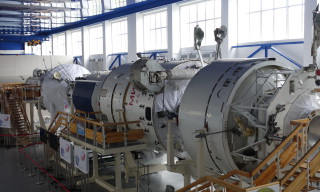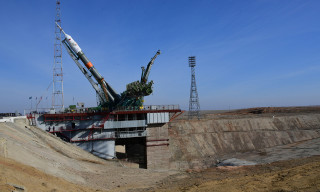Work is underway at Baikonur to prepare the next two launches to the ISS: on the same day RSC Energia engineers checked the condition of the cargo Progress MS-28 and began testing the manned Soyuz MS-26. The first of them will go to the International Space Station in two weeks. Astronauts of their own ship will have to wait until early September.
The Progress MS-28 cargo ship is already very close to launch. One of the last chords of its preparation was a control check in the assembly and test building of the 254th Baikonur site of its solar panels. RSC Energia employees deployed sections of photocells fixed on the ship and irradiated them with the help of powerful lights.
This was necessary in order to assess whether the installation stage has not affected the efficiency of the batteries. The measurements showed that there was nothing wrong with them. At the same time, the preparation of cargoes to be delivered to the ISS reached the finish line. The launch will take place on a rocket “Soyuz-2.1a” from the 31st site and is scheduled for August 15.

At the same time, tests began in the same assembly and test building for Soyuz MS-26, a manned spacecraft that will carry a new long-term expedition to the International Space Station consisting of three cosmonauts – two Russians and one American.
The ship was placed in an anechoic chamber, a special room that simulates space conditions with thick layers of radio-absorbing material on the walls. First of all, this test checks the operation of onboard radio systems. For example, in the case of “Soyuz MS-26” it will be “Kurs-NA”, which ensures the approach of the ship to the station and its docking. Only after making sure that it works like clockwork, engineers will proceed to comprehensive tests.
The Soyuz MS-26 will launch to the International Space Station, according to the plan, on September 11 – after completion of all mandatory tests, which should ensure the full safety of the crew. It will include Roscosmos cosmonauts Alexei Ovchinin and Ivan Vagner, as well as their U.S. colleague Donald Pettit. A backup crew consisting of Sergei Ryzhikov, Alexei Zubritsky and Jonathan Kim is also preparing for the flight.





